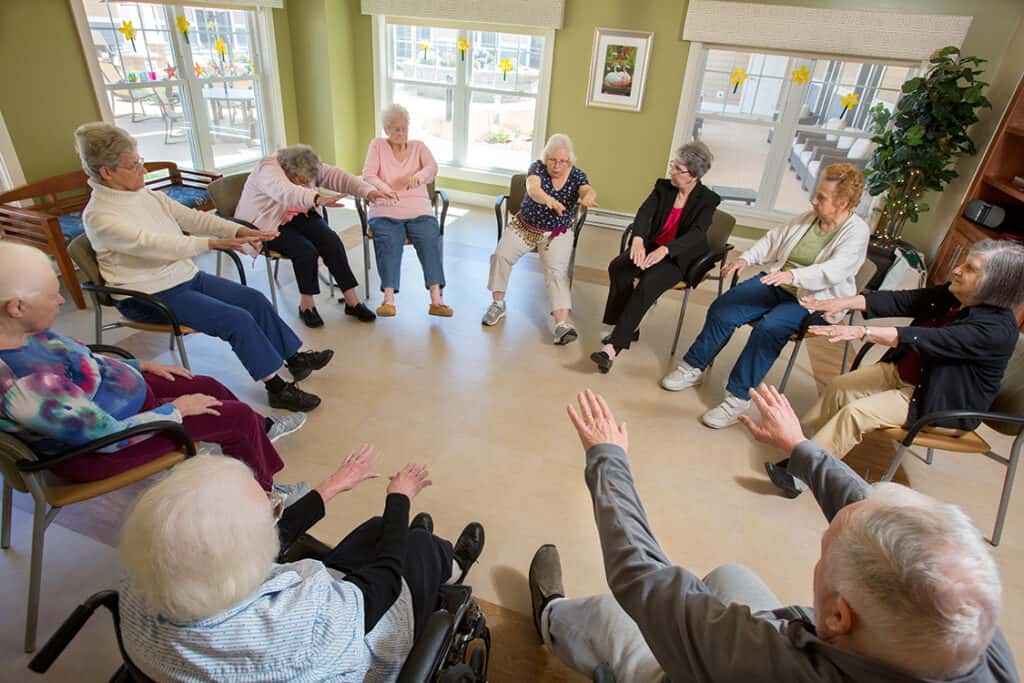Learn about cutting-edge Memory Care programs for cognitive well-being.
Learn about cutting-edge Memory Care programs for cognitive well-being.
Blog Article
Aided Living: a Compassionate Environment for Senior Citizens With Memory Difficulties
By providing individualized care and structured regimens, these communities not just enhance cognitive function yet also foster psychological connections, decreasing seclusion among homeowners. The performance of these interventions frequently hinges on the participation of family members in the care procedure, motivating a closer assessment of just how this collaborative effort affects end results for both residents and liked ones.
Recognizing Memory Challenges
Comprehending memory obstacles is essential for offering efficient like seniors facing cognitive decline. Memory disabilities, which can show up as lapse of memory, confusion, or difficulty recalling current occasions, are usually symptoms of conditions such as Alzheimer's illness or various other types of mental deterioration. These obstacles can significantly impact a senior's capability to do day-to-day jobs, keep social partnerships, and manage personal safety.
Recognizing the various stages of cognitive decline is important for caregivers and health care experts. Early-stage amnesia may include moderate forgetfulness, while mid-stage decline can result in much more noticable disorientation and confusion. In late-stage dementia, individuals may shed the capacity to connect properly, calling for thorough assistance and understanding from caretakers.
Additionally, memory difficulties can evoke a variety of emotional responses, consisting of stress, anxiety, and clinical depression. This demands a thoughtful technique to care that prioritizes the emotional health of the person. Comprehending the complexities of memory difficulties allows caregivers to create customized approaches that boost interaction, promote involvement, and give a complacency. Ultimately, a deep understanding of these obstacles is essential to delivering thoughtful and efficient care for elders dealing with cognitive decline.
Benefits of Assisted Living
Assisted living deals numerous benefits for seniors with memory obstacles, offering a supportive setting that cultivates independence while ensuring safety and care. Among the key benefits is the day-and-night guidance and aid readily available, which assists alleviate dangers connected with memory-related concerns. Assisted Living. This consistent assistance permits elders to take part in daily tasks without the worry of accidents or confusion
In addition, assisted living facilities often offer organized routines that can improve cognitive feature and security. These routines assist homeowners feel more safe and secure and reduce stress and anxiety, as they recognize what to expect daily. Social interaction is one more substantial advantage, as these environments motivate links amongst residents, promoting emotional wellness and lowering sensations of isolation.
In addition, aided living staff are trained to acknowledge the special demands of elders with memory challenges, enabling for customized treatment strategies that resolve specific choices and needs. This tailored approach not only enhances the high quality of care however likewise equips senior citizens to preserve a feeling of freedom. Generally, assisted living functions as a thoughtful remedy, stabilizing the demand for assistance with the need for freedom in the lives of elders encountering memory obstacles.
Specialized Treatment Approaches
Executing specialized care strategies is crucial for successfully supporting elders with memory difficulties. One fundamental strategy is person-centered treatment, which emphasizes the relevance of comprehending each citizen's life background, preferences, and worths.
One more crucial approach includes utilizing cognitive excitement therapies. Tasks developed to boost memory recall, motivate social communication, and promote imagination can significantly influence locals' total well-being. Strategies such as reminiscence treatment leverage individual memories to stimulate conversation and link, while songs therapy can stimulate emotions and memories, supplying comfort.

Developing a Supportive Neighborhood
(Memory Care Facilities Charlotte)A supportive neighborhood plays a crucial function in enhancing the lives of senior citizens with memory obstacles. Such a community cultivates an environment of understanding, empathy, and inspiration, which is important for people facing cognitive problems. By developing a network of support, helped living centers can significantly enhance the lifestyle for locals.
Central to a helpful area is the presence of qualified team that are sensitive to the special demands of seniors with memory impairments. These experts not just give essential care however likewise involve homeowners in meaningful activities that promote cognitive feature and advertise social communication. Programs that encourage participation in group exercises, arts and crafts, or memory video games can improve both physical and psychological well-being.
Additionally, an encouraging neighborhood promotes solid links among residents. Encouraging relationships and peer support helps to decrease feelings of isolation and promotes a feeling of belonging. Normal gatherings and common dining experiences can better you can try here reinforce these bonds, producing an atmosphere where senior citizens feel valued and understood.
Involving Families in Treatment
Engaging family members in the treatment procedure is essential for supplying detailed assistance to elders with memory obstacles. Relative usually function as crucial supporters, using insights into the individual's choices, background, and routines that can boost individualized care. By including them in discussions and treatment preparation, helped living facilities can create an extra all natural technique that resonates with the resident's demands.

Urging families to join treatment not only boosts the wellness of the elderly however also gives emotional assistance to relative. Entailing families in care grows a feeling of community and belonging, making sure that seniors feel linked to their enjoyed ones. Ultimately, a collective strategy to care enriches the lives of both citizens and their family members, creating a compassionate and helpful setting that promotes dignity and respect.
Final Thought
In final thought, helped living serves as an important resource for senior citizens experiencing memory difficulties, providing customized care tailored to individual needs. By involving family members in the treatment procedure, helped living produces a thorough assistance network, ultimately improving the lives of homeowners and their enjoyed ones.
Report this page